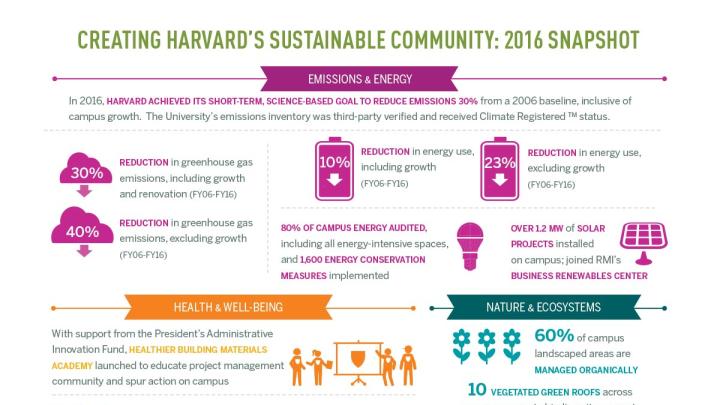In celebration of Earth Day, on April 22, Harvard has released its annual sustainability report for 2016. Although the most notable achievement—a 30 percent reduction in greenhouse gas emissions since 2006—was described earlier in this magazine, the full report details progress on other fronts, such as human health, ecosystem management, and campus operations. Did you know that there has been a 24 percent reduction in campus water use since the 2006 fiscal year? That 60 percent of campus landscaped areas are managed organically? Or that 86 percent of Harvard commuters use sustainable transportation? A one-page graphic (above) summarizes these and other milestones. The full online report appears here.









